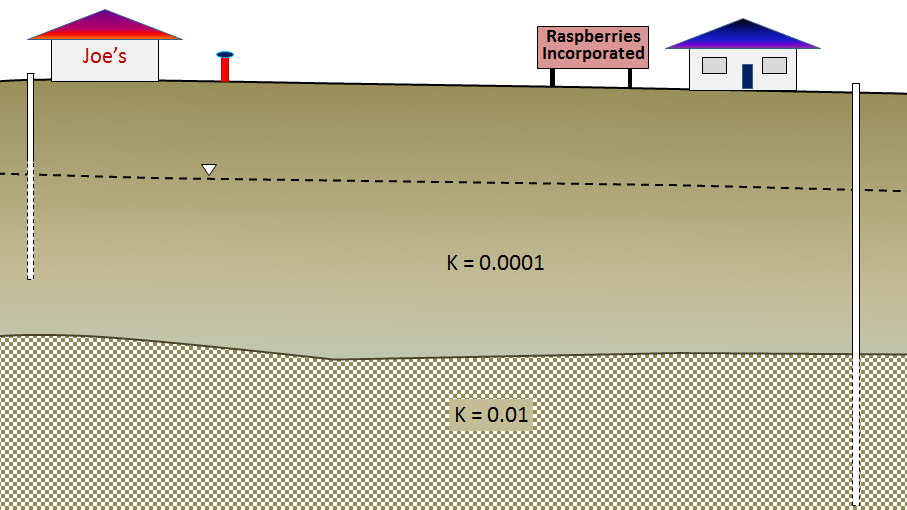107 Summary — Physical Geology – 2nd Edition

Figure A
- What type of aquifer does Sue use?
- What type of aquifer does Frank use?
- It seems that what Sue calls an aquifer is an aquitard (confining layer) from Frank’s perspective. How is that possible?
- Two wells 70 metres apart have water levels of 77 metres and 83 metres above sea level respectively. The aquifer has a hydraulic conductivity of 0.0003 metres per second and a porosity of 20%. What is the likely velocity of groundwater flow in the region between these two wells?
- The well in question 5—with a water level of 83 metres—is heavily used and after several months the water level has dropped by 9 metres. How will that affect the flow of groundwater in the area between the two wells?
- Explain why it is important for provincial governments to operate observation well networks.
- What is the main difference between natural and anthropogenic contamination of groundwater?
- Why is a highly permeable aquifer more vulnerable to anthropogenic contamination than a less permeable aquifer?
- How can a livestock operation lead to contamination of groundwater? What is the most likely contaminant?
- Which mineral in the rock of a mining operation is typically responsible for acid rock drainage?
- Why is it necessary to test the permeability of the soil before constructing a septic field?
Media Attributions
- Figure A: © Steven Earle. CC BY.

